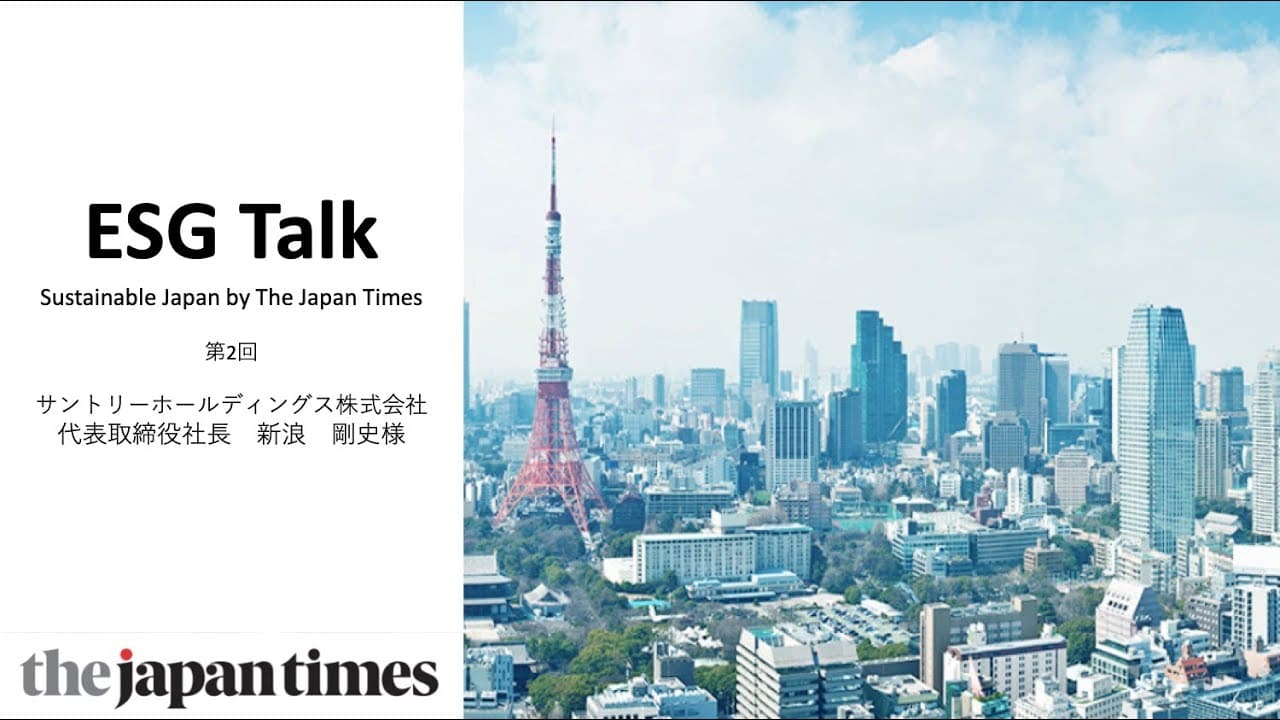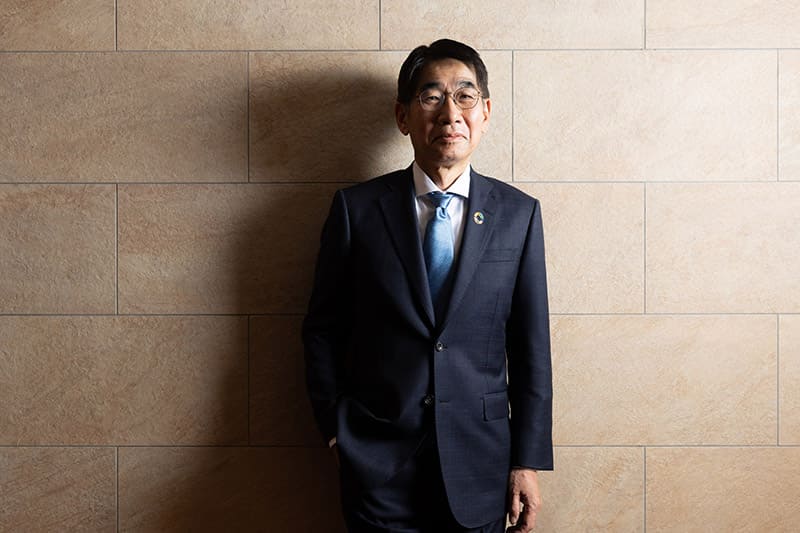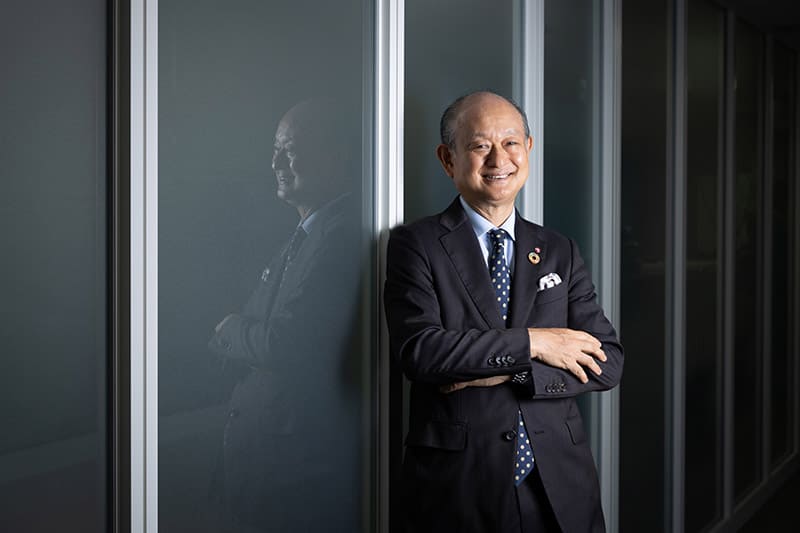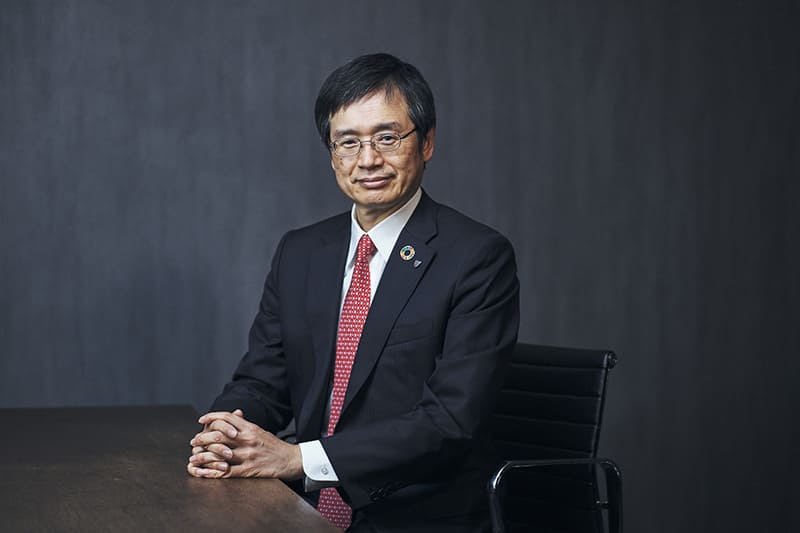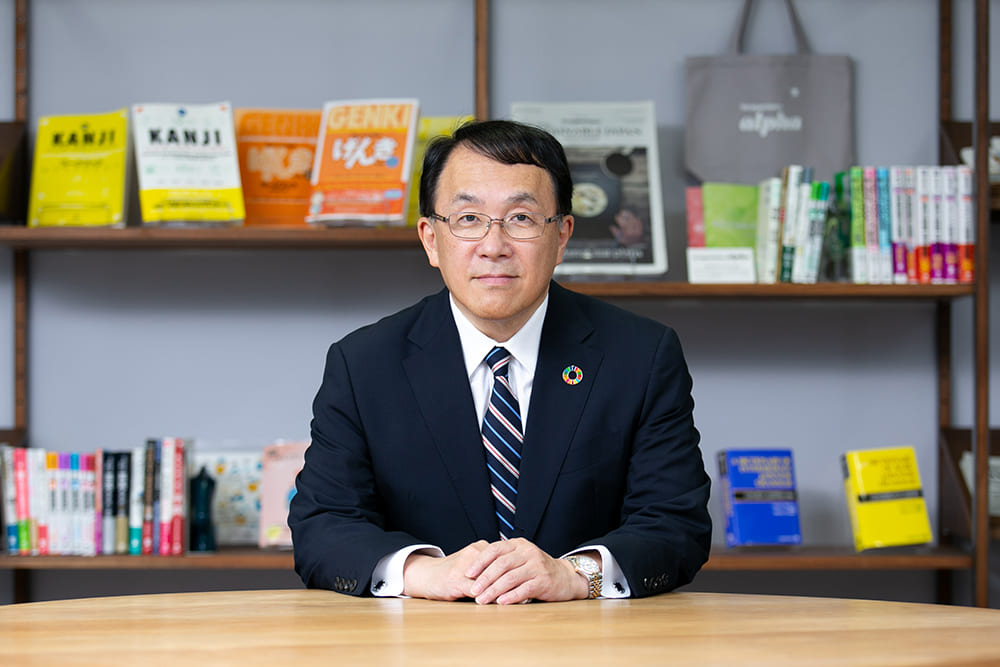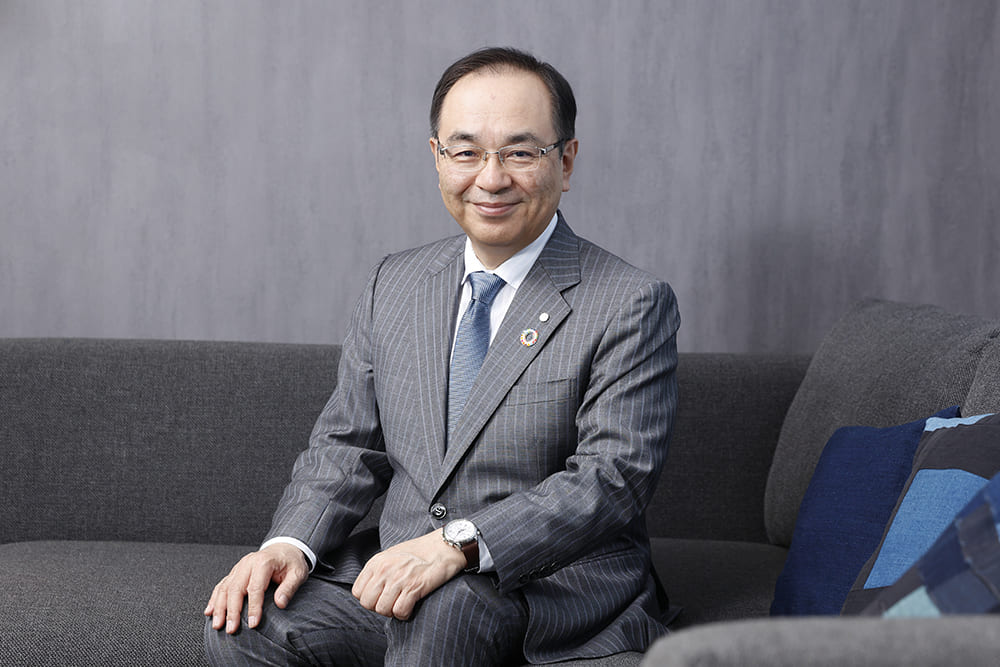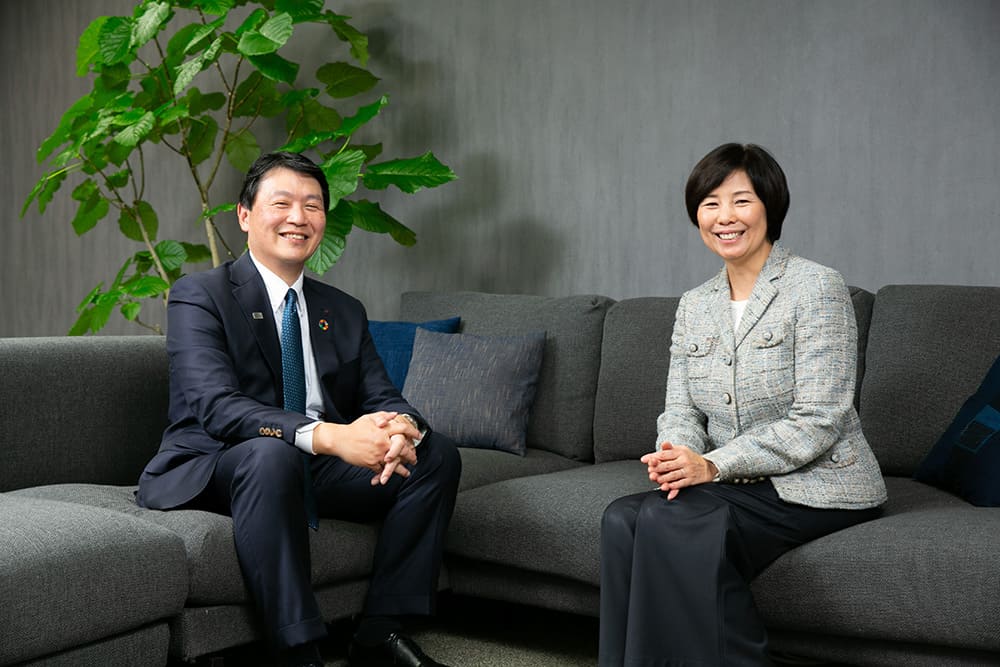March 26, 2021
Founding spirit drives Suntory’s environmental efforts
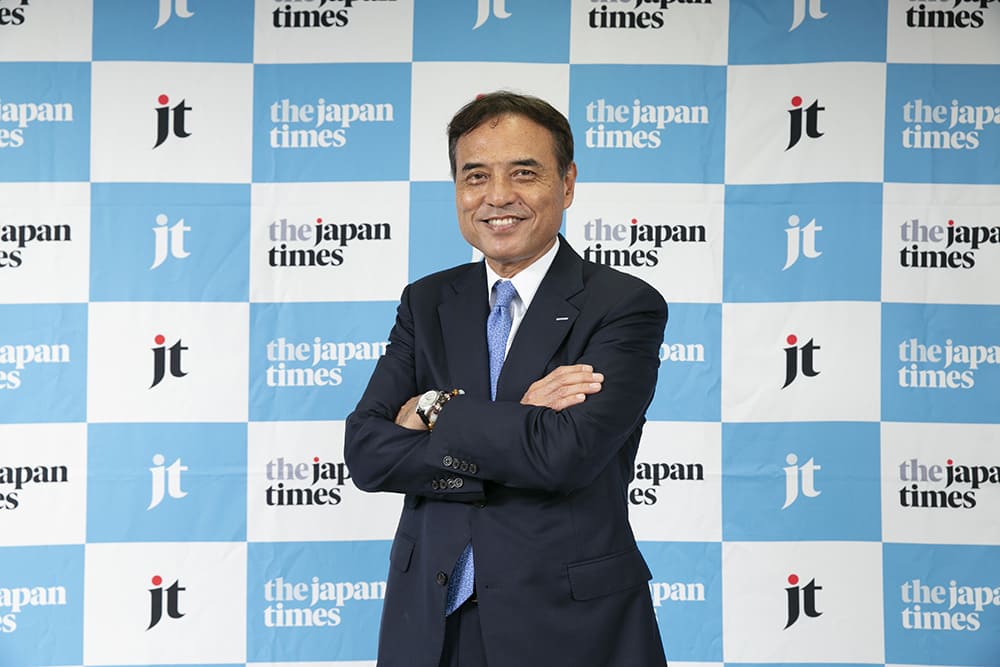
Under its corporate mission, “To Create Harmony with People and Nature,” the Suntory Group has worked to address issues facing our society, including climate change and environmental problems. In 2019, the group established the “Suntory Group Sustainability Vision,” which showcased, to the Japanese as well as the global community, the group’s efforts to help conserve water resources, reduce carbon dioxide emissions, conserve the global environment and protect human rights in supply chains, as well as contribute to spiritually rich and healthy lives of people. It calls on countries, companies, nongovernmental and nonprofit organizations, educational institutions and consumers to work together toward the goal of solving issues faced by society on a global scale.
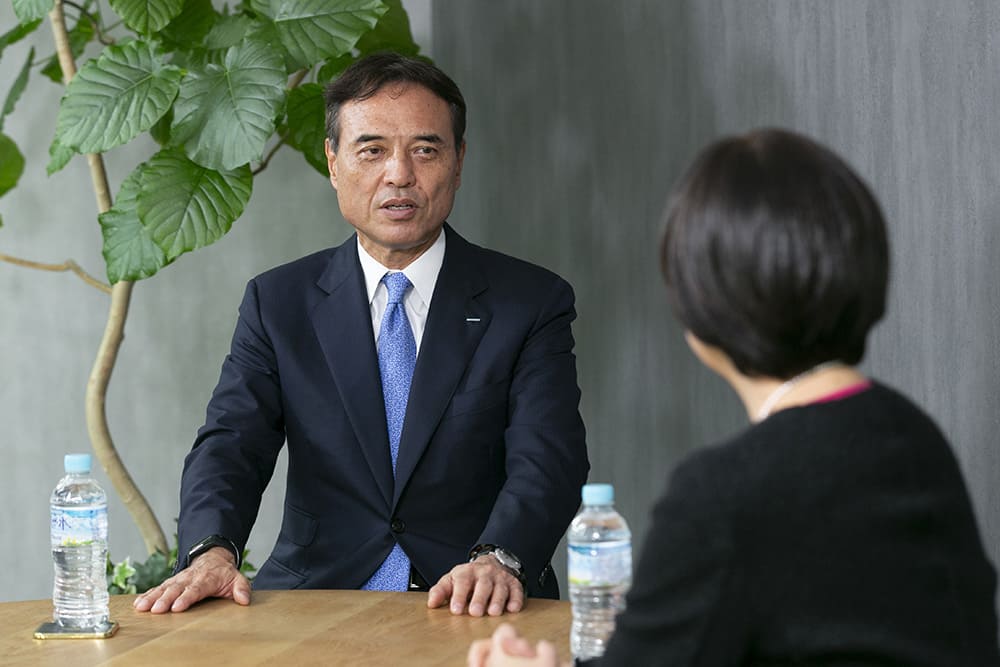
Takeshi Niinami’s interest in considering environmental, social and governance (ESG) factors in business management grew after experiencing the 2011 earthquake and tsunami disaster that hit eastern Japan while he was serving as president of Lawson Inc. Facing the disaster’s devastation, he said he strongly felt that “Businesses must stay close to their society and live with it to make it better.” Suntory does business under the spirit of “Giving Back to Society,” passed down since the company’s founding, and engages in ESG initiatives. It too believes, Niinami said, that “we can operate business only as long as we stay close to our society.”
Recognized for water efforts
In an initiative for increasing water resources, the company in 2003 launched the “Natural Water Sanctuary” project aimed at enhancing the replenishment of water in the ground. It was active in Tokyo and 14 other prefectures across Japan as of June 2020. It had a target of cultivating water that totaled at least twice as much as the groundwater used by the company’s domestic plants. The target was achieved in 2019, a year ahead of the deadline. For Suntory, which publicly pledges “Mizu to Ikiru” (“Living with Water”) as the group’s promise to stakeholders, water is key to its corporate activity. Niinami said, “In order for us to make beverages, we need to not just take water from nature but also protect and nurture water resources and pass them on to the next generation.” Suntory also undertakes this activity at its overseas operations and aims to expand it further.
In addition to efforts to enhance the cultivation of water in the ground, Suntory’s water-related efforts, which are known internationally, include measures to save and recycle water at its plants, nature and water education programs for children, and efforts to conserve and regenerate the natural environment. In December 2020, Suntory Beverage & Food Ltd. earned the highest rating of “A” in a water security survey by CDP (formerly the Carbon Disclosure Project) for the fifth consecutive year. The subsidiary earned the same rating in CDP’s climate change program, which recognizes excellence in environmental conservation activities.
In measures to address climate change, Suntory announced an “Environmental Vision toward 2050” under which it aims to reduce the amount of greenhouse gas emissions to net zero across its whole value chain. Working with stakeholders, Suntory undertakes initiatives such as the introduction of energy-saving technologies, the active use of renewable energy and the use of next-generation infrastructure.
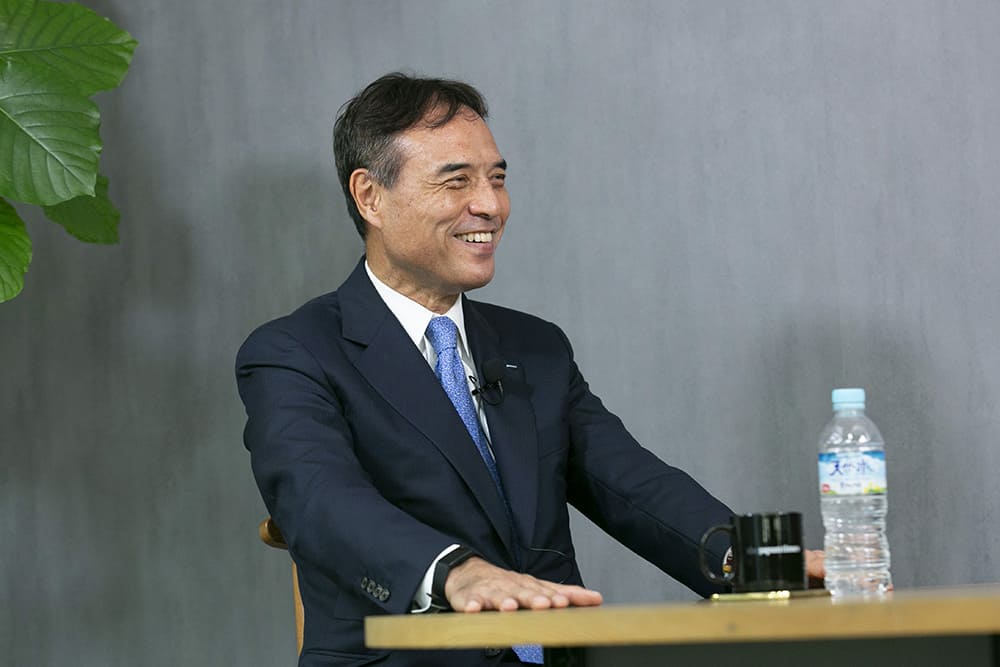
In 2019, it established the “Suntory Group Plastic Policy,” which aims to switch all PET bottles used by Suntory’s global operations to recycled or plant-based materials by the end of 2030, making all of them sustainable. According to Niinami, Japan leads the world in the system for collecting used plastic and the technology for recycling most of it, thanks to the private sector’s role in leading the efforts to develop such a system and technology. He says that what needs to be done next is to develop a system to recycle the waste plastics that have so far been used as a heat source.
But there are issues confronting such an endeavor. One is the huge costs of developing and introducing the necessary technologies, which are expected to progress going forward. In order to recover the costs, instead of just passing them on to consumers, Niinami says, beverage companies need to not just cooperate with rivals but must unite all available resources in the industry, including its supply chains, to achieve technological innovation and reduce costs as well as increase processing capacity. He adds that cooperation by citizens and the support by the government are also necessary. There are in addition urgent needs to reduce the use of virgin plastic and to develop technologies to reduce the amount of carbon dioxide discharged in the recycling process.
The COVID-19 pandemic has had a major impact on the economy and our lives, but it also has created an opportunity for people to realize the usefulness of plastics in preventing infection and for medical treatment. “People used to think plastics must be eliminated because they are ‘evil,’ but such thinking has undergone a significant change,” Niinami said. “They now think plastics should be recycled.”
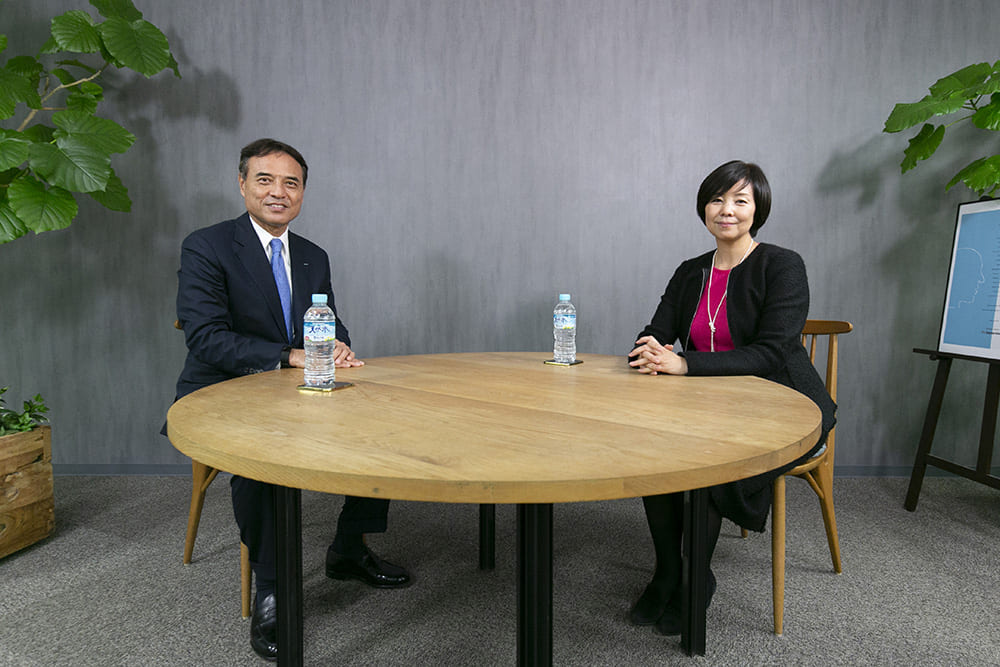
Global COVID-19 efforts
Suntory globally engages in various activities to help people affected by the COVID-19 pandemic. These include the production of sterilizing alcohol in Japan, the United States, Canada, Europe and Mexico; the provision of various forms of support to restaurant and bar workers and their families across numerous markets, including meal support and the donation of hand-made face masks to people in the restaurant industry, mainly in the U.S.; and the “Sakimeshi” project to support restaurants in Japan. The company’s employees offered ideas for support projects, varying in scale, and then realized them by working with local communities. Niinami believes the company’s sustainability activity has had a significant role in motivating employees on such initiatives. The sustainability activity “made them feel like working with a company that shares their wish (to contribute to society), which helped motivate them.” He added that he can feel “the founding spirit of ‘Giving Back to Society’ is very much alive across our global operations.”
Niinami has a sense of crisis about the fact that moves to create ESG rules and standards are being led by Europe. He worries that the idea of “green technology” could mean that technologies that have existed for many years may be regarded as having no value just because they do not comply with newly created rules. Niinami said the idea of ESG is being used by countries as part of their growth strategy, and he had the following advice to offer Japanese businesses from the standpoint of a global company:
“You need to continue to showcase your company’s technology and initiatives, and get everybody involved. In doing so, you should talk about things that you can do by putting in a little more effort, instead of just what you can do right away. You can achieve innovation by setting a target a little further away. That’s what common sense says in the world. You should go along the ‘virtue done openly’ philosophy rather than ‘virtue done secretly.’ It’s important for both the private sector and the government to disseminate information to the world and make what is attractive about Japanese companies and their technologies known.”


